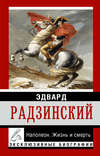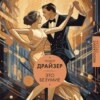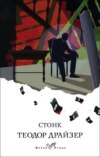Loe raamatut: «The "Genius"»
BOOK I
YOUTH
CHAPTER I
This story has its beginnings in the town of Alexandria, Illinois, between 1884 and 1889, at the time when the place had a population of somewhere near ten thousand. There was about it just enough of the air of a city to relieve it of the sense of rural life. It had one street-car line, a theatre, – or rather, an opera house, so-called (why no one might say, for no opera was ever performed there) – two railroads, with their stations, and a business district, composed of four brisk sides to a public square. In the square were the county court-house and four newspapers. These two morning and two evening papers made the population fairly aware of the fact that life was full of issues, local and national, and that there were many interesting and varied things to do. On the edge of town, several lakes and a pretty stream – perhaps Alexandria's most pleasant feature – gave it an atmosphere not unakin to that of a moderate-priced summer resort. Architecturally the town was not new. It was mostly built of wood, as all American towns were at this time, but laid out prettily in some sections, with houses that sat back in great yards, far from the streets, with flower beds, brick walks, and green trees as concomitants of a comfortable home life. Alexandria was a city of young Americans. Its spirit was young. Life was all before almost everybody. It was really good to be alive.
In one part of this city there lived a family which in its character and composition might well have been considered typically American and middle western. It was not by any means poor – or, at least, did not consider itself so; it was in no sense rich. Thomas Jefferson Witla, the father, was a sewing machine agent with the general agency in that county of one of the best known and best selling machines made. From each twenty, thirty-five or sixty-dollar machine which he sold, he took a profit of thirty-five per cent. The sale of machines was not great, but it was enough to yield him nearly two thousand dollars a year; and on that he had managed to buy a house and lot, to furnish it comfortably, to send his children to school, and to maintain a local store on the public square where the latest styles of machines were displayed. He also took old machines of other makes in exchange, allowing ten to fifteen dollars on the purchase price of a new machine. He also repaired machines, – and with that peculiar energy of the American mind, he tried to do a little insurance business in addition. His first idea was that his son, Eugene Tennyson Witla, might take charge of this latter work, once he became old enough and the insurance trade had developed sufficiently. He did not know what his son might turn out to be, but it was always well to have an anchor to windward.
He was a quick, wiry, active man of no great stature, sandy-haired, with blue eyes with noticeable eye-brows, an eagle nose, and a rather radiant and ingratiating smile. Service as a canvassing salesman, endeavoring to persuade recalcitrant wives and indifferent or conservative husbands to realize that they really needed a new machine in their home, had taught him caution, tact, savoir faire. He knew how to approach people pleasantly. His wife thought too much so.
Certainly he was honest, hard working, and thrifty. They had been waiting a long time for the day when they could say they owned their own home and had a little something laid away for emergencies. That day had come, and life was not half bad. Their house was neat, – white with green shutters, surrounded by a yard with well kept flower beds, a smooth lawn, and some few shapely and broad spreading trees. There was a front porch with rockers, a swing under one tree, a hammock under another, a buggy and several canvassing wagons in a nearby stable. Witla liked dogs, so there were two collies. Mrs. Witla liked live things, so there were a canary bird, a cat, some chickens, and a bird house set aloft on a pole where a few blue-birds made their home. It was a nice little place, and Mr. and Mrs. Witla were rather proud of it.
Miriam Witla was a good wife to her husband. A daughter of a hay and grain dealer in Wooster, a small town near Alexandria in McLean County, she had never been farther out into the world than Springfield and Chicago. She had gone to Springfield as a very young girl, to see Lincoln buried, and once with her husband she had gone to the state fair or exposition which was held annually in those days on the lake front in Chicago. She was well preserved, good looking, poetic under a marked outward reserve. It was she who had insisted upon naming her only son Eugene Tennyson, a tribute at once to a brother Eugene, and to the celebrated romanticist of verse, because she had been so impressed with his "Idylls of the King."
Eugene Tennyson seemed rather strong to Witla père, as the name of a middle-western American boy, but he loved his wife and gave her her way in most things. He rather liked the names of Sylvia and Myrtle with which she had christened the two girls. All three of the children were good looking, – Sylvia, a girl of twenty-one, with black hair, dark eyes, full blown like a rose, healthy, active, smiling. Myrtle was of a less vigorous constitution, small, pale, shy, but intensely sweet – like the flower she was named after, her mother said. She was inclined to be studious and reflective, to read verse and dream. The young bloods of the high school were all crazy to talk to Myrtle and to walk with her, but they could find no words. And she herself did not know what to say to them.
Eugene Witla was the apple of his family's eye, younger than either of his two sisters by two years. He had straight smooth black hair, dark almond-shaped eyes, a straight nose, a shapely but not aggressive chin; his teeth were even and white, showing with a curious delicacy when he smiled, as if he were proud of them. He was not very strong to begin with, moody, and to a notable extent artistic. Because of a weak stomach and a semi-anæmic condition, he did not really appear as strong as he was. He had emotion, fire, longings, that were concealed behind a wall of reserve. He was shy, proud, sensitive, and very uncertain of himself.
When at home he lounged about the house, reading Dickens, Thackeray, Scott and Poe. He browsed idly through one book after another, wondering about life. The great cities appealed to him. He thought of travel as a wonderful thing. In school he read Taine and Gibbon between recitation hours, wondering at the luxury and beauty of the great courts of the world. He cared nothing for grammar, nothing for mathematics, nothing for botany or physics, except odd bits here and there. Curious facts would strike him – the composition of clouds, the composition of water, the chemical elements of the earth. He liked to lie in the hammock at home, spring, summer or fall, and look at the blue sky showing through the trees. A soaring buzzard poised in speculative flight held his attention fixedly. The wonder of a snowy cloud, high piled like wool, and drifting as an island, was like a song to him. He had wit, a keen sense of humor, a sense of pathos. Sometimes he thought he would draw; sometimes write. He had a little talent for both, he thought, but did practically nothing with either. He would sketch now and then, but only fragments – a small roof-top, with smoke curling from a chimney and birds flying; a bit of water with a willow bending over it and perhaps a boat anchored; a mill pond with ducks afloat, and a boy or woman on the bank. He really had no great talent for interpretation at this time, only an intense sense of beauty. The beauty of a bird in flight, a rose in bloom, a tree swaying in the wind – these held him. He would walk the streets of his native town at night, admiring the brightness of the store windows, the sense of youth and enthusiasm that went with a crowd; the sense of love and comfort and home that spoke through the glowing windows of houses set back among trees.
He admired girls, – was mad about them, – but only about those who were truly beautiful. There were two or three in his school who reminded him of poetic phrases he had come across – "beauty like a tightened bow," "thy hyacinth hair, thy classic face," "a dancing shape, an image gay" – but he could not talk to them with ease. They were beautiful but so distant. He invested them with more beauty than they had; the beauty was in his own soul. But he did not know that. One girl whose yellow hair lay upon her neck in great yellow braids like ripe corn, was constantly in his thoughts. He worshiped her from afar but she never knew. She never knew what solemn black eyes burned at her when she was not looking. She left Alexandria, her family moving to another town, and in time he recovered, for there is much of beauty. But the color of her hair and the wonder of her neck stayed with him always.
There was some plan on the part of Witla to send these children to college, but none of them showed any great desire for education. They were perhaps wiser than books, for they were living in the realm of imagination and feeling. Sylvia longed to be a mother, and was married at twenty-one to Henry Burgess, the son of Benjamin C. Burgess, editor of the Morning Appeal. There was a baby the first year. Myrtle was dreaming through algebra and trigonometry, wondering whether she would teach or get married, for the moderate prosperity of the family demanded that she do something. Eugene mooned through his studies, learning nothing practical. He wrote a little, but his efforts at sixteen were puerile. He drew, but there was no one to tell him whether there was any merit in the things he did or not. Practical matters were generally without significance to him. But he was overawed by the fact that the world demanded practical service – buying and selling like his father, clerking in stores, running big business. It was a confusing maze, and he wondered, even at this age, what was to become of him. He did not object to the kind of work his father was doing, but it did not interest him. For himself he knew it would be a pointless, dreary way of making a living, and as for insurance, that was equally bad. He could hardly bring himself to read through the long rigamarole of specifications which each insurance paper itemized. There were times – evenings and Saturdays – when he clerked in his father's store, but it was painful work. His mind was not in it.
As early as his twelfth year his father had begun to see that Eugene was not cut out for business, and by the time he was sixteen he was convinced of it. From the trend of his reading and his percentage marks at school, he was equally convinced that the boy was not interested in his studies. Myrtle, who was two classes ahead of him but sometimes in the same room, reported that he dreamed too much. He was always looking out of the window.
Eugene's experience with girls had not been very wide. There were those very minor things that occur in early youth – girls whom we furtively kiss, or who furtively kiss us – the latter had been the case with Eugene. He had no particular interest in any one girl. At fourteen he had been picked by a little girl at a party as an affinity, for the evening at least, and in a game of "post-office" had enjoyed the wonder of a girl's arms around him in a dark room and a girl's lips against his; but since then there had been no re-encounter of any kind. He had dreamed of love, with this one experience as a basis, but always in a shy, distant way. He was afraid of girls, and they, to tell the truth, were afraid of him. They could not make him out.
But in the fall of his seventeenth year Eugene came into contact with one girl who made a profound impression on him. Stella Appleton was a notably beautiful creature. She was very fair, Eugene's own age, with very blue eyes and a slender sylph-like body. She was gay and debonair in an enticing way, without really realizing how dangerous she was to the average, susceptible male heart. She liked to flirt with the boys because it amused her, and not because she cared for anyone in particular. There was no petty meanness about it, however, for she thought they were all rather nice, the less clever appealing to her almost more than the sophisticated. She may have liked Eugene originally because of his shyness.
He saw her first at the beginning of his last school year when she came to the city and entered the second high school class. Her father had come from Moline, Illinois, to take a position as manager of a new pulley manufactory which was just starting. She had quickly become friends with his sister Myrtle, being perhaps attracted by her quiet ways, as Myrtle was by Stella's gaiety.
One afternoon, as Myrtle and Stella were on Main Street, walking home from the post office, they met Eugene, who was on his way to visit a boy friend. He was really bashful; and when he saw them approaching he wanted to escape, but there was no way. They saw him, and Stella approached confidently enough. Myrtle was anxious to intercept him, because she had her pretty companion with her.
"You haven't been home, have you?" she asked, stopping. This was her chance to introduce Stella; Eugene couldn't escape. "Miss Appleton, this is my brother Eugene."
Stella gave him a sunny encouraging smile, and her hand, which he took gingerly. He was plainly nervous.
"I'm not very clean," he said apologetically. "I've been helping father fix a buggy."
"Oh, we don't mind," said Myrtle. "Where are you going?"
"Over to Harry Morris's," he explained.
"What for?"
"We're going for hickory nuts."
"Oh, I wish I had some," said Stella.
"I'll bring you some," he volunteered gallantly.
She smiled again. "I wish you would."
She almost proposed that they should be taken along, but inexperience hindered her.
Eugene was struck with all her charm at once. She seemed like one of those unattainable creatures who had swum into his ken a little earlier and disappeared. There was something of the girl with the corn-colored hair about her, only she had been more human, less like a dream. This girl was fine, delicate, pink, like porcelain. She was fragile and yet virile. He caught his breath, but he was more or less afraid of her. He did not know what she might be thinking of him.
"Well, we're going on to the house," said Myrtle.
"I'd go along if I hadn't promised Harry I'd come over."
"Oh, that's all right," replied Myrtle. "We don't mind."
He withdrew, feeling that he had made a very poor impression. Stella's eyes had been on him in a very inquiring way. She looked after him when he had gone.
"Isn't he nice?" she said to Myrtle frankly.
"I think so," replied Myrtle; "kind o'. He's too moody, though."
"What makes him?"
"He isn't very strong."
"I think he has a nice smile."
"I'll tell him!"
"No, please don't! You won't, will you?"
"No."
"But he has a nice smile."
"I'll ask you round to the house some evening and you can meet him again."
"I'd like to," said Stella. "It would be a lot of fun."
"Come out Saturday evening and stay all night. He's home then."
"I will," said Stella. "Won't that be fine!"
"I believe you like him!" laughed Myrtle.
"I think he's awfully nice," said Stella, simply.
The second meeting happened on Saturday evening as arranged, when he came home from his odd day at his father's insurance office. Stella had come to supper. Eugene saw her through the open sitting room door, as he bounded upstairs to change his clothes, for he had a fire of youth which no sickness of stomach or weakness of lungs could overcome at this age. A thrill of anticipation ran over his body. He took especial pains with his toilet, adjusting a red tie to a nicety, and parting his hair carefully in the middle. He came down after a while, conscious that he had to say something smart, worthy of himself, or she would not see how attractive he was; and yet he was fearful as to the result. When he entered the sitting room she was sitting with his sister before an open fire-place, the glow of a lamp with a red-flowered shade warmly illuminating the room. It was a commonplace room, with its blue cloth-covered center table, its chairs of stereotyped factory design, and its bookcase of novels and histories, but it was homey, and the sense of hominess was strong.
Mrs. Witla was in and out occasionally, looking for things which appertained to her functions as house-mother. The father was not home yet; he would get there by supper-time, having been to some outlying town of the county trying to sell a machine. Eugene was indifferent to his presence or absence. Mr. Witla had a fund of humor which extended to joking with his son and daughters, when he was feeling good, to noting their budding interest in the opposite sex; to predicting some commonplace climax to their one grand passion when it should come. He was fond of telling Myrtle that she would one day marry a horse-doctor. As for Eugene, he predicted a certain Elsa Brown, who, his wife said, had greasy curls. This did not irritate either Myrtle or Eugene. It even brought a wry smile to Eugene's face for he was fond of a jest; but he saw his father pretty clearly even at this age. He saw the smallness of his business, the ridiculousness of any such profession having any claim on him. He never wanted to say anything, but there was in him a burning opposition to the commonplace, a molten pit in a crater of reserve, which smoked ominously now and then for anyone who could have read. Neither his father nor his mother understood him. To them he was a peculiar boy, dreamy, sickly, unwitting, as yet, of what he really wanted.
"Oh, here you are!" said Myrtle, when he came in. "Come and sit down."
Stella gave him an enticing smile.
He walked to the mantel-piece and stood there, posing. He wanted to impress this girl, and he did not quite know how. He was almost lost for anything to say.
"You can't guess what we've been doing!" his sister chirped helpfully.
"Well – what?" he replied blankly.
"You ought to guess. Can't you be nice and guess?"
"One guess, anyhow," put in Stella.
"Toasting pop-corn," he ventured with a half smile.
"You're warm." It was Myrtle speaking.
Stella looked at him with round blue eyes. "One more guess," she suggested.
"Chestnuts!" he guessed.
She nodded her head gaily. "What hair!" he thought. Then – "Where are they?"
"Here's one," laughed his new acquaintance, holding out a tiny hand.
Under her laughing encouragement he was finding his voice. "Stingy!" he said.
"Now isn't that mean," she exclaimed. "I gave him the only one I had. Don't you give him any of yours, Myrtle."
"I take it back," he pleaded. "I didn't know."
"I won't!" exclaimed Myrtle. "Here, Stella," and she held out the few nuts she had left, "take these, and don't you give him any!" She put them in Stella's eager hands.
He saw her meaning. It was an invitation to a contest. She wanted him to try to make her give him some. He fell in with her plan.
"Here!" He stretched out his palm. "That's not right!"
She shook her head.
"One, anyhow," he insisted.
Her head moved negatively from side to side slowly.
"One," he pleaded, drawing near.
Again the golden negative. But her hand was at the side nearest him, where he could seize it. She started to pass its contents behind her to the other hand but he jumped and caught it.
"Myrtle! Quick!" she called.
Myrtle came. It was a three-handed struggle. In the midst of the contest Stella twisted and rose to her feet. Her hair brushed his face. He held her tiny hand firmly. For a moment he looked into her eyes. What was it? He could not say. Only he half let go and gave her the victory.
"There," she smiled. "Now I'll give you one."
He took it, laughing. What he wanted was to take her in his arms.
A little while before supper his father came in and sat down, but presently took a Chicago paper and went into the dining room to read. Then his mother called them to the table, and he sat by Stella. He was intensely interested in what she did and said. If her lips moved he noted just how. When her teeth showed he thought they were lovely. A little ringlet on her forehead beckoned him like a golden finger. He felt the wonder of the poetic phrase, "the shining strands of her hair."
After dinner he and Myrtle and Stella went back to the sitting room. His father stayed behind to read, his mother to wash dishes. Myrtle left the room after a bit to help her mother, and then these two were left alone. He hadn't much to say, now that they were together – he couldn't talk. Something about her beauty kept him silent.
"Do you like school?" she asked after a time. She felt as if they must talk.
"Only fairly well," he replied. "I'm not much interested. I think I'll quit one of these days and go to work."
"What do you expect to do?"
"I don't know yet – I'd like to be an artist." He confessed his ambition for the first time in his life – why, he could not have said.
Stella took no note of it.
"I was afraid they wouldn't let me enter second year high school, but they did," she remarked. "The superintendent at Moline had to write the superintendent here."
"They're mean about those things," he cogitated.
She got up and went to the bookcase to look at the books. He followed after a little.
"Do you like Dickens?" she asked.
He nodded his head solemnly in approval. "Pretty much," he said.
"I can't like him. He's too long drawn out. I like Scott better."
"I like Scott," he said.
"I'll tell you a lovely book that I like." She paused, her lips parted trying to remember the name. She lifted her hand as though to pick the title out of the air. "The Fair God," she exclaimed at last.
"Yes – it's fine," he approved. "I thought the scene in the old Aztec temple where they were going to sacrifice Ahwahee was so wonderful!"
"Oh, yes, I liked that," she added. She pulled out "Ben Hur" and turned its leaves idly. "And this was so good."
"Wonderful!"
They paused and she went to the window, standing under the cheap lace curtains. It was a moonlight night. The rows of trees that lined the street on either side were leafless; the grass brown and dead. Through the thin, interlaced twigs that were like silver filigree they could see the lamps of other houses shining through half-drawn blinds. A man went by, a black shadow in the half-light.
"Isn't it lovely?" she said.
Eugene came near. "It's fine," he answered.
"I wish it were cold enough to skate. Do you skate?" She turned to him.
"Yes, indeed," he replied.
"My, it's so nice on a moonlit night. I used to skate a lot at Moline."
"We skate a lot here. There're two lakes, you know."
He thought of the clear crystal nights when the ice of Green Lake had split every so often with a great resounding rumble. He thought of the crowds of boys and girls shouting, the distant shadows, the stars. Up to now he had never found any girl to skate with successfully. He had never felt just easy with anyone. He had tried it, but once he had fallen with a girl, and it had almost cured him of skating forever. He felt as though he could skate with Stella. He felt that she might like to skate with him.
"When it gets colder we might go," he ventured. "Myrtle skates."
"Oh, that'll be fine!" she applauded.
Still she looked out into the street.
After a bit she came back to the fire and stood before him, pensively looking down.
"Do you think your father will stay here?" he asked.
"He says so. He likes it very much."
"Do you?"
"Yes – now."
"Why now?"
"Oh, I didn't like it at first."
"Why?"
"Oh, I guess it was because I didn't know anybody. I like it though, now." She lifted her eyes.
He drew a little nearer.
"It's a nice place," he said, "but there isn't much for me here. I think I'll leave next year."
"Where do you think you'll go?"
"To Chicago. I don't want to stay here."
She turned her body toward the fire and he moved to a chair behind her, leaning on its back. She felt him there rather close, but did not move. He was surprising himself.
"Aren't you ever coming back?" she asked.
"Maybe. It all depends. I suppose so."
"I shouldn't think you'd want to leave yet."
"Why?"
"You say it's so nice."
He made no answer and she looked over her shoulder. He was leaning very much toward her.
"Will you skate with me this winter?" he asked meaningly.
She nodded her head.
Myrtle came in.
"What are you two talking about?" she asked.
"The fine skating we have here," he said.
"I love to skate," she exclaimed.
"So do I," added Stella. "It's heavenly."




















